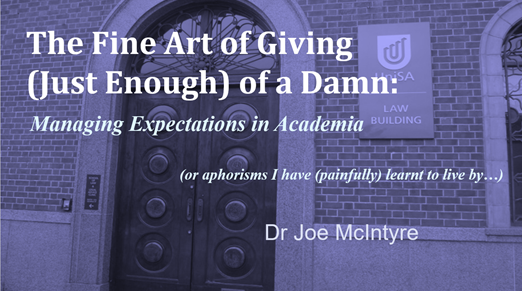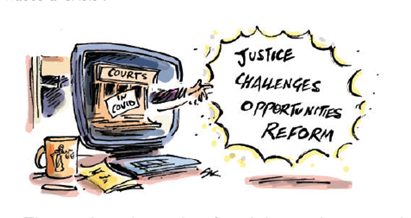#onlinelearning is taking off (of necessity) and lots of great info out there. Here is a presentation I did a couple of years back
My focus here was on the idea, not the tech
THREAD 1: BASIC PRINCIPLES
My focus here was on the idea, not the tech
THREAD 1: BASIC PRINCIPLES
Many people are worried about online learning, and how it may affect future teaching - is this the thin edge of the wedge?
From my experience the impact is likely to be the opposite
From my experience the impact is likely to be the opposite

Online teaching has been around for 20+years. If it was superior it would already have superseded face-2-face.
It is not better.
In many cases it is worse.
But where the alternative is nothing it is great.
It is not better.
In many cases it is worse.
But where the alternative is nothing it is great.
I will return to objectives of what we should be aiming for in the context of Covid-19 in a bit, but first some basic concepts. There are some basic oppositions to bear in mind: 

Some aspects of teaching is better suited to synchronous (tutorials) and others to asynchronous learning (lectures).
Think: am I principally teaching CONTENT or SKILLS
This shapes whether you aim for more active or passive forms of online teaching
Think: am I principally teaching CONTENT or SKILLS
This shapes whether you aim for more active or passive forms of online teaching
There is commonly a push from Uni Admins for 'flexible' delivery that favours asychronousity. The cost of flexibility is that it undermines structure and (potentially) scaffolding.
Perhaps the biggest is the tension between quality and efficiency. Teaching online takes substantial time & effort.
It is not quick/fast/cheap.
To achieve quality is often at the cost of efficiency - much more so than in the physical world.
(This is relevant for #COVID19)
It is not quick/fast/cheap.
To achieve quality is often at the cost of efficiency - much more so than in the physical world.
(This is relevant for #COVID19)
OL is, in my opinion greatly inferior to quality face-to-face teaching. There are some amazing masters out there that can deliver incredible results.
But for most of us, when everything goes right, you will only be approach an experience 70-80% as good.
But for most of us, when everything goes right, you will only be approach an experience 70-80% as good.
OL is subject to significant diminishing returns.
When I taught online, we would allocate 2 hours to deliver a tutorial that took 1 hour face-2-face. This ratio seems pretty consistent whenever active engagement is required.
When I taught online, we would allocate 2 hours to deliver a tutorial that took 1 hour face-2-face. This ratio seems pretty consistent whenever active engagement is required.
Even achieving these limited result will take significantly more time that you think:
The tech will fail
You cat/child will come in
The internet will buffer (hello #NBN)
You will be working with a new system
Students will be working with a new system
In short, its hard!
The tech will fail
You cat/child will come in
The internet will buffer (hello #NBN)
You will be working with a new system
Students will be working with a new system
In short, its hard!
It is harder, slower & less good.
Despite these limits, there is a real place for OL. If the alternative is a 20% experience (effectively self-directed) achieving 80% for only twice the effort is great.
Where students are remote, working, or #Corvid19-ing, this bargain is good
Despite these limits, there is a real place for OL. If the alternative is a 20% experience (effectively self-directed) achieving 80% for only twice the effort is great.
Where students are remote, working, or #Corvid19-ing, this bargain is good
Within these limits, the critical thing is to workout WHAT you are trying to do --> then work out which tech is best suited to that goal.
Below is a map of learning activities and the degree of passivity and sychronosity:
Below is a map of learning activities and the degree of passivity and sychronosity:

As you can see, the type of activity chose should reflect what you are trying to do.
Lectures/podcasts/videos etc are fine for knowledge delivery - and this is a place where OL can be relativity straightforward
Skills development will be more challenging - but is still fine
Lectures/podcasts/videos etc are fine for knowledge delivery - and this is a place where OL can be relativity straightforward
Skills development will be more challenging - but is still fine
What I am trying to illustrate with the last picture is that things that might seem the same may be false analogies.
A Pre-recorded 'tutorial' is actually diametrically opposed, from a pedagogical perspective, form a live tutorial
A Pre-recorded 'tutorial' is actually diametrically opposed, from a pedagogical perspective, form a live tutorial
1) Principles over Technology: A tech solution may look analogous, but it may not be so in practice - avoid false analogies
2) Start with the Pedagogical Objective - what do you want to do for the students
2) Start with the Pedagogical Objective - what do you want to do for the students
3) You are likely to need a suite of learning infrastructure to deliver you course - build that up slowly taking a holistic picture
IN CLOSING: Online learning is a useful approach, with real limits. Don't be overwhelmed, do believe the hype. Do your best, and be OK with that. Ultimately, it is still teaching and that is more important than any tech
PS: I will do two other threads - one with some tips on making the tech work, and one on pivoting in a rush
• • •
Missing some Tweet in this thread? You can try to
force a refresh













